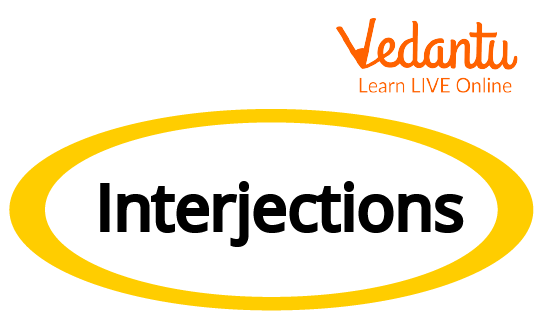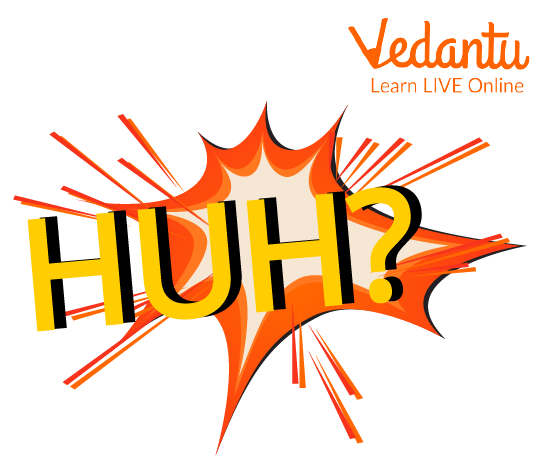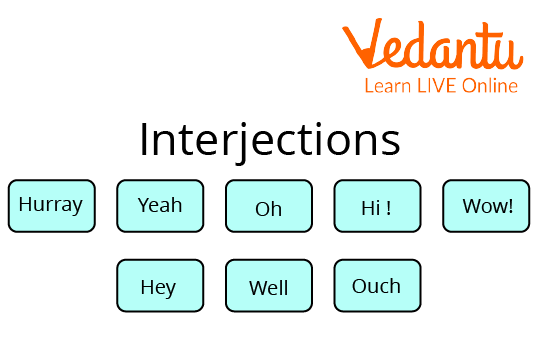An Overview of Class 8 English Grammar Ncert Solutions Interjections
FAQs on Class 8 English Grammar Ncert Solutions Interjections
1. What is an interjection, and how can a student identify one correctly for a 1-mark question in the Class 8 English exam?
An interjection is a word or phrase used to express a sudden feeling or emotion. For exams, the easiest way to identify one is to look for a word that is set apart from the rest of the sentence by an exclamation mark (!) or a comma (,). For example, in “Wow! That is a beautiful painting,” the word 'Wow!' is the interjection.
2. What are the key punctuation rules for using interjections that are important for the CBSE Class 8 exams (2025-26)?
To score well on questions about interjections, students must know the correct punctuation. The key rules are:
A strong interjection expressing a powerful emotion should be followed by an exclamation mark. Example: “Ouch! That hurts.”
A mild interjection should be followed by a comma. Example: “Well, I will think about it.”
When an interjection appears in the middle of a sentence, it is usually set off by commas. Example: “My score, oh dear, was not what I expected.”
3. What types of questions on interjections are frequently asked in the Class 8 English grammar section?
In the Class 8 exam, questions on interjections typically test your ability to identify and use them correctly. You can expect question formats such as:
Identify the interjection in a given sentence and state the emotion it conveys (e.g., joy, sorrow, surprise).
Fill in the blank with a suitable interjection based on the context of the sentence.
Rewrite a sentence by adding the correct punctuation (a comma or an exclamation mark) for the interjection.
4. How does choosing a specific interjection, like 'Alas!' versus 'Bravo!', change the entire meaning of a sentence?
The choice of interjection is crucial as it sets the emotional tone. For instance, 'Alas! He failed the exam' expresses sorrow or pity. In contrast, 'Bravo! He passed the exam' expresses praise and admiration. Using the wrong interjection can completely confuse the intended meaning, a concept often tested in higher-order thinking skill (HOTS) questions.
5. What is a common mistake students make with interjections in exams, and how can it be avoided?
A very common mistake is using an exclamation mark after every interjection. Examiners often check if students can differentiate between mild and strong emotions. To avoid this error, always assess the intensity of the emotion. If the feeling is gentle or introductory (like 'Well,' or 'Oh,'), use a comma. Reserve the exclamation mark for strong, sudden outbursts (like 'Hurray!' or 'Ouch!').
6. Beyond expressing emotion, what is the grammatical importance of an interjection in a sentence?
While interjections are grammatically independent and do not modify other words, their importance lies in providing context and voice. They show the writer's or speaker's attitude and make the writing more dynamic and realistic. In an exam, correctly identifying this tone can be key to answering comprehension questions or scoring marks for sentence construction.
7. Can a word function as an interjection in one context and a different part of speech in another? Explain with an example.
Yes, this is an important concept for grammar exams. The function of a word depends entirely on its context. For example, the word 'boy':
As an Interjection: “Boy! That was a close call.” (Here, 'Boy!' expresses surprise or strong feeling).
As a Noun: “The boy threw the ball.” (Here, 'boy' is a person, a common noun).
Understanding this difference is crucial for accurately identifying parts of speech.



























